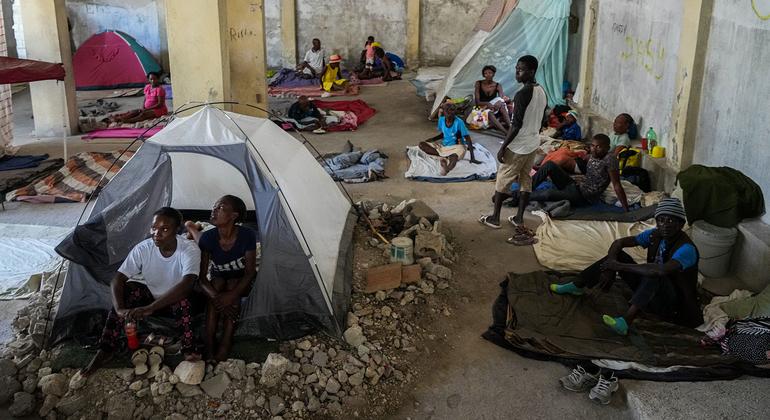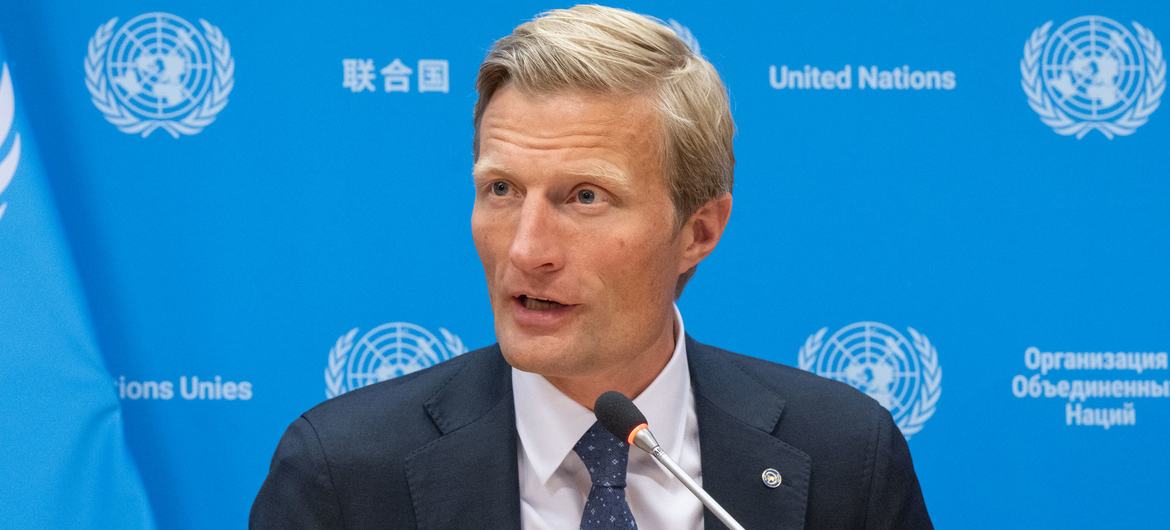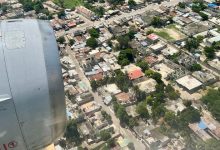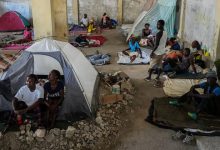Top UN Aid Official Pushes for Full-On Response to Haiti Crisis
 The ongoing crisis in Haiti is having a “massive” and “devastating” impact, with over half the population acutely food insecure and more than one million staring at emergency levels of hunger, a senior UN World Food Programme (WFP) official said on Thursday.
The ongoing crisis in Haiti is having a “massive” and “devastating” impact, with over half the population acutely food insecure and more than one million staring at emergency levels of hunger, a senior UN World Food Programme (WFP) official said on Thursday.
Haitians have been facing a multitude of challenges over the years, encompassing political, security, social and economic issues. The protracted crisis has been further exacerbated by months of brutal gang violence that claimed more than 2,500 lives in the first quarter of 2024 alone.
Having recently returned from the country, Carl Skau, WFP Deputy Executive Director, told journalists at UN Headquarters in New York that the crisis was the worst since the 2010 Haiti earthquake.
“Half the population – some five million people are acutely food insecure,” he said, adding that over a million are in the IPC Phase 4 or Emergency level of hunger.
He stressed that a political and security response to the crisis needs to be accompanied by a robust humanitarian response.
“What I saw on the ground is that this can be done, also at the centre of the crisis, in Port-au-Prince. But that we need also to do more on resilience and development elsewhere to really try to break this vicious cycle,” he added.
‘Crisis felt everywhere’
About 90,200 people are displaced in the Port-au-Prince Metropolitan Area, with that number continuing to rise, according to the UN humanitarian affairs office (OCHA).
At the same time, trade is disrupted in other parts of the country, inflation is rising sharply, and supplies are beginning to run out.
“The crisis is felt everywhere,” Mr. Skau said, urging a differentiated response.
“What we need is an emergency response in Port-au-Prince, but we can continue to do other kinds of support, including development support in the rest of the country,” he said.
The WFP official noted that aid supplies are starting to run out on the ground.
“And so, we would need to replenish also with shipments. So, we are hoping, having seen that the international airport open at least for one flight, that that can be sustained and expanded, and also that there would be an opening of the port in Port-au-Prince.”

UN Photo/Eskinder Debebe
Carl Skau, Deputy Executive Director of the United Nations World Food Programme (WFP), briefs reporters on his recent visit to Haiti.
Garrett is a skilled author driven by a desire to illuminate global issues through his writing. With a foundation in journalism and international relations, he offers a distinctive viewpoint in his work, exploring the complexities of geopolitical events in depth.




As a humanitarian worker myself, I strongly believe that a comprehensive approach is crucial in addressing the crisis in Haiti. It’s heartbreaking to see the devastating impact on the population, and urgent action must be taken to alleviate the suffering and prevent further escalation of the situation.
Is there any specific plan in place to address the food insecurity crisis in Haiti? How can the international community better support the people struggling in the midst of these challenges?
A senior UN World Food Programme official emphasized the urgent need for a full-on response to the crisis in Haiti. The situation is dire, with over half the population facing acute food insecurity and more than one million people in emergency levels of hunger. Political and security measures must be accompanied by a robust humanitarian effort to address the devastating impact felt across the country. It is essential to focus on resilience and development to break the vicious cycle of ongoing crises in Haiti.
As a humanitarian aid worker myself, it’s heartbreaking to witness the dire situation in Haiti. The crisis demands urgent action and comprehensive support to address the immediate food insecurity and the deeper-rooted issues plaguing the country. I applaud the call for a full-on response to alleviate the suffering of the Haitian people.